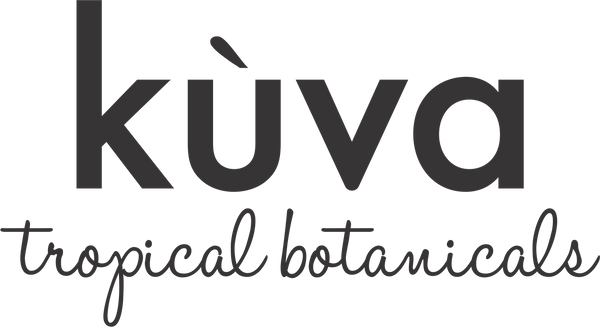WHAT ARE HANDCRAFTED SOAPS?

Handcrafted soaps, are manufactured locally in small batches with the personal oversight and care of the soapmaker. Handcrafted soapmakers use high-quality ingredients and are able to add specialty oils and additives to personalize their formulations. The creative artistry of each handcrafted soapmaker results in soaps that are different and unique, offering consumers a wide selection of soaps that are not only natural, but functional and beautiful as well.
IS YOUR SOAP REALLY SOAP?
When it comes to body care, we are spoilt for choice these days, just in the soap category, we have body bars, body washes, foam wash, etc… But what are these really? Most of the soap you purchase today is a commercially manufactured chemical cocktail of ingredients. It is not natural and is not even really “soap.”
Here is what the FDA has to say:
“Today there are very few true soaps on the market. Most body cleansers, both liquid and solid, are actually synthetic detergent products. Detergent cleansers are popular because they make suds easily in water and don’t form gummy deposits. Some of these detergent products are actually marketed as “soap” but are not true soap according to the regulatory definition of the word.”
True soap is a chemical reaction between vegetable or animal fats and lye solution. When combined, they transform into soap and glycerine with no lye remaining in the soap. This reaction is called saponification. Different oils impart different qualities to soap. Some add lathering qualities, some moisturizing, some hardness, and so on. We use a larger percentage of extra moisturizing and conditioning oils in our soaps and shampoo bars than many other soapmakers.
As a result, you may notice our bar soaps tend to be softer than those of other soapmakers, especially our shampoo bars which contain a large percentage of castor oil. These “softer” oils may also decrease the shelf-life. Commercial soaps are made with synthetic preservatives that can extend the soap’s shelf-life, yet harm your skin. Natural organic soaps are made with wholesome ingredients and essential oils.

SO HOW DO I TELL THE DIFFERENCE ?
Natural soap is made with natural ingredients. If you look at the ingredients list for your soap, the ingredients should be listed in descending order of weight, this means that the ingredients used in the greatest amount are listed first, followed in descending order by those in smaller amounts. In a natural soap, The first few ingredients should always be plant oils and/or butters, such as coconut oil, olive oil, cocoa butter, etc…
Learning to read the ingredient list will change how you see beauty products. Marketers have become extremely good at “green-washing” brands and making them look natural and eco-friendly. As the rules for naming a product only require that the product must contain the ingredient, a soap that is named “cocoa butter soap”, might actually only contain 1% cocoa butter! So, learning to read the ingredient list and decide for yourself which product is truly natural is an important step in educating yourself as a consumer. A good rule of thumb is, the less ingredients, the better.
WHY IS NATURAL SOAP BETTER?
The body’s largest organ, our skin, is incredibly porous and absorbent. How we treat our skin can have a major impact on our overall health as well as the look and feel of our skin. Natural soaps made from plant oils and butters are full of moisturizing ingredients that are great for your skin. Natural, cold-process soap uses a process called “super fatting” to add extra oils to the soap bar to keep the soap from drying out your skin. This process leaves a portion of unincorporated oils in the finished soap, which ensures that our natural soap bars have superior moisturizing and emollient qualities. Since adding extra oils and butters can decrease the shelf-life of a soap bar, commercial soaps sacrifice the moisturizing properties in favor of their “forever” shelf-life.
Natural soaps also retain their natural glycerin. Glycerin is not added to a natural handmade soap recipe – it is created during the natural soap making process! The chemical reaction of making soap is called saponification. Once saponification is complete, the ingredients have combined and chemically changed into soap, glycerin, and a bit of water. Glycerin, a precious and gentle emollient, is a humectant that draws moisture from the air to the skin creating a moisturizing protective layer. Commercial soap manufacturers remove the glycerin from their soaps for two reasons. (1) Excess glycerin decreases the shelf-life of soap and (2) they can sell it or use it in products that command a higher price like the lotion your skin needs after using their glycerin-free detergent “soap.”
Apart from the benefits to the skin, using natural soap also benefits the environment. As we take a bath or shower with commercial “soap” bars or washes, we coat our skin with synthetic compounds like fragrances, dyes, preservatives, and detergents. All of these chemicals, many of which do not naturally break down, have to go somewhere. They wash down our drains into our septic fields or water treatment facilities. Studies have found that these chemicals often end up in our water systems and accumulate in our ecosystems. These chemicals affect wildlife–from fish to birds and natural foliage to flowers.
In addition, smaller companies like ours, do not just pay lip service to being “environmentally friendly”, apart from using ingredients that do no harm to the environment, we also avoid packaging, like plastic, which becomes trash and is one of the major issues facing the environment today.
CONCLUSION
As you can see from the points listed above, Natural soap is very different from commercially made soap, from its benefits to the skin to its environmental impact. Natural soaps are really soap. The recipes use sustainable, environmentally friendly natural and organic ingredients in an age-old process to produce a great lathering mild soap that promotes healthy skin.
We hope you give our natural soaps a try and feel the difference in enjoying a good, old-fashioned bar of traditional, hand-made soap!


